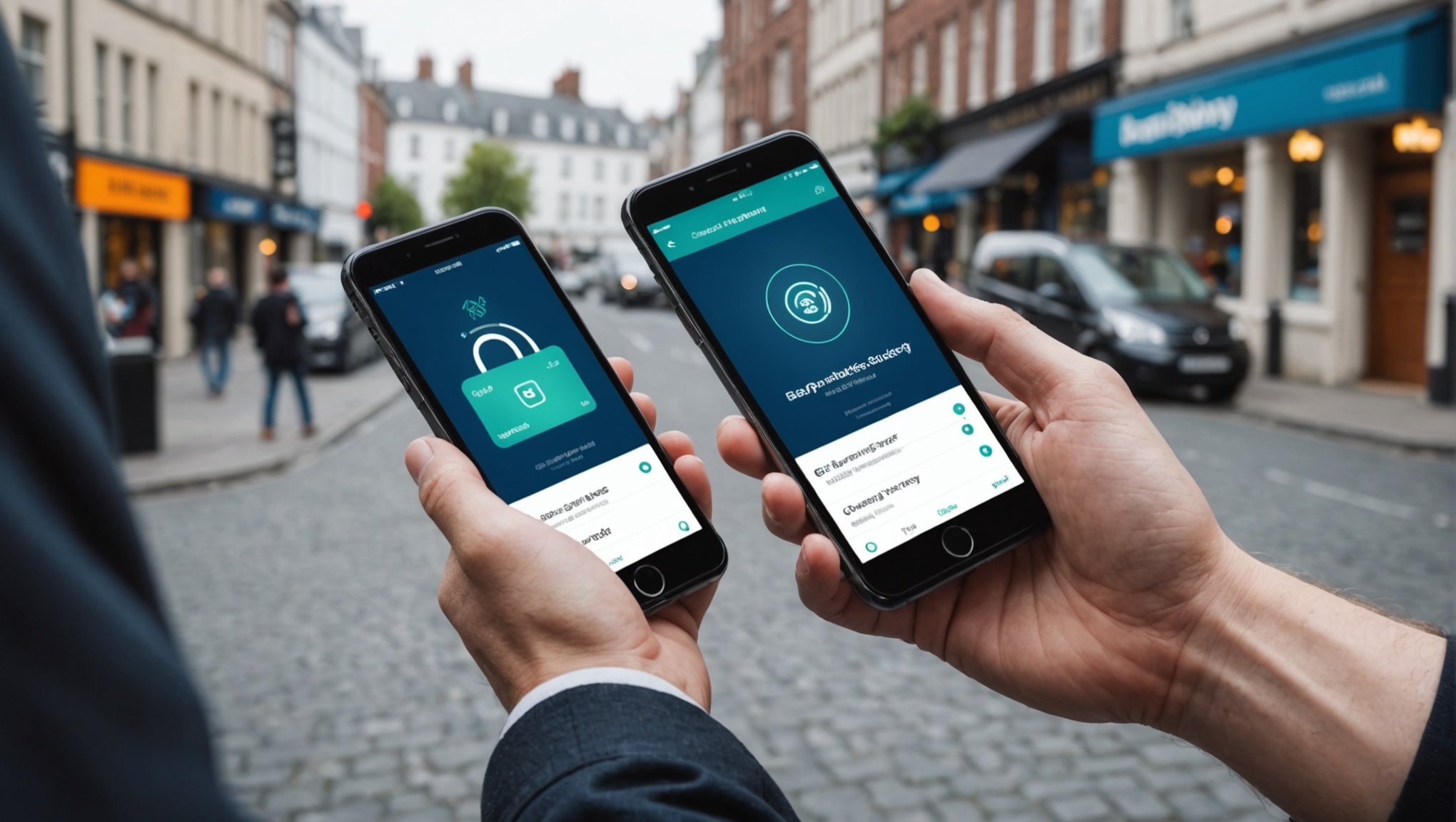The gig economy in the UK thrives on mobile payments, but security concerns persist for workers relying on these transactions. Fraud and data breaches can erode trust and impact livelihoods. Implementing specific strategies to enhance mobile payment security not only protects earnings but also fosters confidence. Discover practical steps that gig economy workers can take to secure their finances while navigating this dynamic landscape, ensuring peace of mind in every transaction.
Understanding Mobile Payment Security for Gig Economy Workers
For gig economy workers in the UK, mobile payment security is a crucial aspect of their financial transactions. With the rise of digital platforms, many gig workers rely on mobile payment systems for quick and efficient payments. These systems are designed to offer convenience, but they also present unique security challenges.
Also to discover : Maximizing Your Digital Ad Spend: A Guide for Small UK Businesses
Mobile payment systems commonly used by gig workers include apps like PayPal, Square, and Venmo. These platforms enable seamless transactions but require stringent security measures to protect sensitive information. Ensuring security is paramount as gig workers often handle multiple transactions daily, increasing their exposure to potential threats.
The importance of security in mobile payments for the gig economy cannot be overstated. Gig workers must safeguard their earnings against cyber threats such as hacking and phishing. Personal and financial data breaches can lead to significant financial losses and identity theft.
In the same genre : Top Strategies for Seamlessly Integrating Voice Recognition in UK Healthcare Applications
Common vulnerabilities faced by gig workers include unsecured Wi-Fi connections and outdated software. These can be exploited by cybercriminals to access confidential information. Gig workers should employ best practices like using strong, unique passwords and enabling two-factor authentication to enhance their mobile payment security.
By understanding these vulnerabilities and implementing robust security measures, gig workers can protect themselves and their livelihoods in the ever-evolving digital landscape.
Best Practices for Enhancing Mobile Payment Security
To ensure mobile payment security, gig economy workers must adopt effective strategies. Implementing strong password protocols is a fundamental step. Use complex passwords that combine uppercase and lowercase letters, numbers, and symbols. Avoid easily guessable information like birthdays or simple sequences. Regularly updating passwords and using a password manager can further enhance security.
Two-factor authentication (2FA) is another essential security measure. By requiring a second form of verification, such as a code sent to your mobile device, 2FA adds an extra layer of protection. This makes it significantly harder for cybercriminals to gain unauthorized access, even if they have your password.
Regularly updating mobile applications and devices is crucial. Updates often include security patches that address vulnerabilities. Ignoring these updates can leave your device and data exposed to threats. Set your apps and devices to update automatically to ensure you benefit from the latest security enhancements.
By following these mobile payment best practices, gig workers can significantly reduce their risk of falling victim to cyber threats. Adopting these security tips not only protects individual earnings but also contributes to a safer digital environment for all users. Prioritizing security is an ongoing process that requires vigilance and proactive measures.
Technological Solutions for Secure Transactions
In the realm of mobile payment technology, ensuring secure transactions is vital. One of the primary security solutions is encryption, which protects transaction data from unauthorised access. Encryption transforms sensitive information into a code that can only be deciphered with a specific key, making it difficult for hackers to access the data. This method is widely used in mobile payment systems to safeguard financial details during transactions.
Secure payment gateways also play a crucial role in protecting transaction data. These gateways act as intermediaries between the user and the payment processor, ensuring that all data transferred is encrypted and secure. They provide an additional layer of security by verifying the legitimacy of transactions, thus reducing the risk of fraud.
Biometric authentication technologies are becoming increasingly popular as a security measure in mobile payment systems. These technologies use unique biological traits, such as fingerprints or facial recognition, to verify the identity of users. This method offers a high level of security, as biometric data is difficult to replicate. By integrating biometric authentication, mobile payment platforms can enhance their security and provide users with a more secure transaction experience.
Real-World Examples of Effective Security Measures
Exploring case studies can provide valuable insights into effective mobile payment security. One notable success story involves a gig worker who implemented stringent security measures, such as two-factor authentication and regularly updating passwords. These proactive steps helped prevent unauthorised access to their accounts, showcasing the importance of adopting such practices.
An analysis of companies with robust mobile payment security strategies reveals key lessons. For instance, a leading ride-sharing platform enhanced its security by integrating biometric authentication. This move not only improved user trust but also significantly reduced fraudulent activities. Their approach highlights the effectiveness of leveraging advanced technologies to secure transactions.
Lessons learned from security breaches in the gig economy further underscore the need for vigilance. A food delivery service faced a data breach due to outdated software, resulting in compromised user information. This incident emphasises the critical need for regular software updates and maintaining up-to-date security protocols.
Incorporating these case studies and lessons can guide gig workers and companies in fortifying their mobile payment security. By understanding real-world examples, stakeholders can better prepare and implement effective strategies to protect their financial transactions from potential threats.
Legal Considerations Surrounding Mobile Payments in the UK
Navigating the legal issues surrounding mobile payments is crucial for gig workers in the UK. Understanding the regulatory landscape ensures that they are aware of their rights and obligations when using these platforms.
Overview of Regulations
The UK has established several regulations to govern mobile payments. The Payment Services Regulations 2017 and the General Data Protection Regulation (GDPR) are key frameworks. These regulations mandate that service providers implement stringent security measures to protect users' data and ensure secure transactions.
Rights of Gig Workers
Gig workers have specific rights concerning payment security. They are entitled to transparency in transaction processes and protection of their personal and financial information. If a security breach occurs, workers have the right to be informed promptly and to seek remedies.
Reporting and Recourse
In the event of a security breach, gig workers should report the incident to the service provider and relevant authorities, such as the Financial Conduct Authority (FCA). They can also pursue recourse through legal channels if necessary, ensuring that their rights are upheld and any losses compensated. Understanding these legal issues empowers gig workers to protect their financial interests effectively.
Potential Pitfalls to Avoid in Mobile Payment Security
In the dynamic landscape of mobile payments, avoiding common mistakes is essential for gig workers. One significant mobile payment pitfall is ignoring security updates and patches. These updates often address vulnerabilities that cybercriminals can exploit. By neglecting them, users increase their risk of exposure to threats. Ensuring that devices and applications are up-to-date is a simple yet effective way to enhance security.
Another common mistake is underestimating the importance of user awareness. Many security breaches occur due to human error, such as falling for phishing scams or using weak passwords. Educating users about potential threats and safe practices is crucial. Gig workers should be aware of the signs of phishing attempts and the importance of maintaining strong, unique passwords.
Relying solely on technology without user training is a frequent mobile payment pitfall. While advanced security features like encryption and biometric authentication are valuable, they are not foolproof. Users must be trained to recognise suspicious activities and respond appropriately. Combining technology with informed user practices creates a robust defence against cyber threats.
By addressing these common mistakes, gig workers can strengthen their mobile payment security and protect their financial interests effectively.
Resources for Gig Workers to Enhance Payment Security
Navigating the complexities of mobile payment security can be daunting for gig workers. Fortunately, a variety of security resources are available to support and educate them.
Recommended Apps and Tools
Several apps and tools can enhance transaction security. Password managers like LastPass and 1Password help gig workers create and store strong, unique passwords. Virtual Private Networks (VPNs), such as NordVPN or ExpressVPN, secure internet connections, especially on public Wi-Fi. These tools are essential in protecting sensitive financial data.
Community Support Networks
Engaging with community support networks can be invaluable. Online forums and groups, like Reddit's gig economy subreddit, provide spaces for gig workers to share experiences and advice. Participation in these networks fosters a sense of community and offers practical solutions to common security challenges.
Educational Resources
Access to educational resources is crucial for staying informed about the latest security practices. Websites like Cyber Aware and the National Cyber Security Centre offer guides and updates on mobile payment security. These resources empower gig workers with knowledge to protect their financial transactions effectively, ensuring they remain secure in an ever-evolving digital landscape.
Future Trends in Mobile Payment Security for Gig Workers
As the future of payments continues to evolve, gig workers must stay informed about emerging technologies that promise to enhance mobile payment security. Anticipated advancements include the integration of artificial intelligence (AI) to predict and prevent security threats. AI algorithms can analyse transaction patterns, detect anomalies, and flag suspicious activities in real-time, providing a robust defence against potential breaches.
Emerging technologies like blockchain are also set to revolutionise the security landscape. Blockchain offers a decentralised ledger system that ensures transparency and immutability, reducing the risk of fraud and unauthorised access. This technology can provide gig workers with a more secure and reliable payment platform.
Preparing for evolving threats in the gig economy requires a proactive approach. Gig workers should be aware of the latest security trends and adopt tools that incorporate these advancements. Regular training and awareness programmes can equip workers with the knowledge to navigate new challenges effectively. By staying updated on the future of payments, gig workers can better protect their financial transactions and adapt to the rapidly changing digital environment. Embracing these emerging technologies will be crucial in safeguarding their livelihoods in the years to come.











